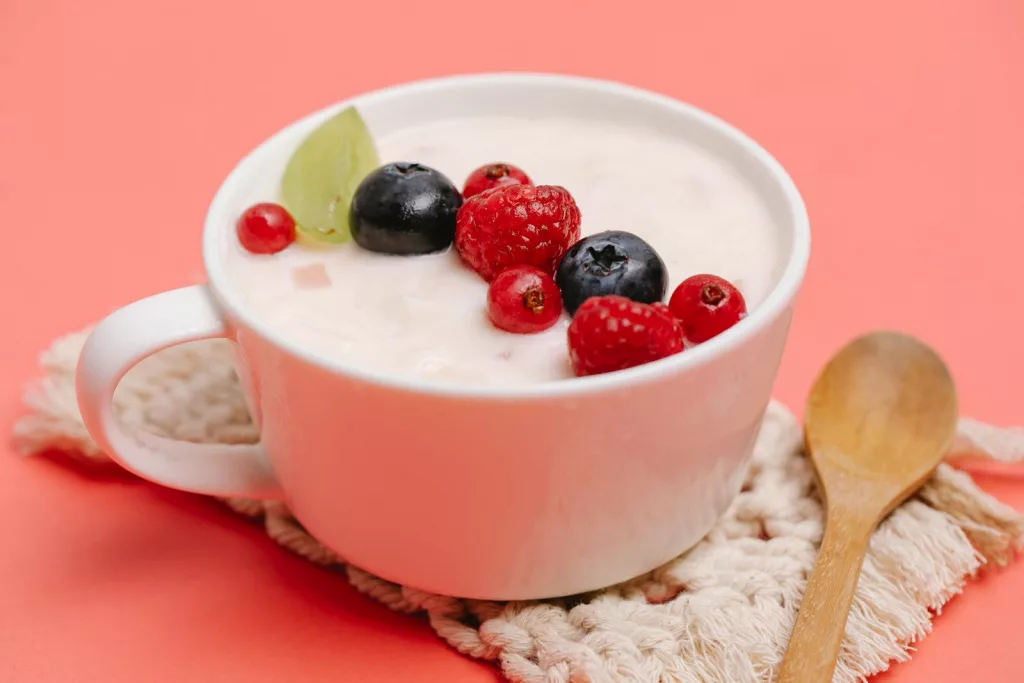20 Microbiome-Boosting Foods for Gut Health and Beyond

A healthy gut microbiome is essential for overall well-being, affecting digestion, immunity, mental health, and more. The gut is home to trillions of microorganisms, including bacteria, fungi, and viruses, which play a crucial role in maintaining balance within the body. By incorporating microbiome-boosting foods into your diet, you can support these beneficial microbes and improve gut health. Furthermore, maintaining a healthy gut microbiome has been linked to reduced inflammation, better mood regulation, enhanced immune defense, and even improved weight management, demonstrating its profound impact on overall health and longevity.
In this article, we explore 20 microbiome-boosting foods that promote a thriving gut and offer a host of additional health benefits. From probiotic-rich fermented foods to fiber-packed plants and antioxidant-rich options, these dietary choices can help you cultivate a healthier microbiome and enhance your overall wellness. By learning about these foods and their preparation methods, you can make informed choices to maximize their benefits for your gut.
1. Yogurt
Yogurt is a well-known source of probiotics, which are live beneficial bacteria that promote a healthy gut microbiome. Look for plain, unsweetened yogurt with active or live cultures to maximize its gut-friendly benefits. Probiotics in yogurt can help balance the gut flora, improve digestion, and support immune function. Additionally, they can alleviate symptoms of bloating, diarrhea, and lactose intolerance by restoring the microbial balance in the gut.
In addition to its probiotic content, yogurt is rich in protein, calcium, and vitamins, making it a nutritious choice for maintaining both gut health and overall wellness. Adding fresh fruits, nuts, or seeds can enhance its nutritional profile further, providing a well-rounded snack or meal. Consuming yogurt regularly can also improve skin health, reduce inflammation, and strengthen bone density.
2. Kefir
Kefir is a fermented milk drink packed with a diverse range of probiotics. It contains up to 30 strains of beneficial bacteria and yeast, making it a powerful choice for improving gut microbiome diversity. Kefir can also enhance lactose digestion, making it suitable for those with mild lactose intolerance. Its unique probiotic strains can help regulate bowel movements, combat harmful bacteria, and improve nutrient absorption.
Besides probiotics, kefir provides calcium, protein, and B vitamins, supporting bone health and energy production. Its tangy flavor and creamy texture make it a versatile ingredient for smoothies, salad dressings, or as a standalone drink. Experimenting with flavored or plant-based kefir options can add variety while retaining its gut-friendly benefits. Including kefir in your daily routine can also contribute to a stronger immune system and reduced gut inflammation.
3. Sauerkraut
Sauerkraut, made from fermented cabbage, is rich in probiotics and fiber, both of which support a healthy gut microbiome. The fermentation process introduces beneficial bacteria that improve digestion, strengthen the immune system, and enhance nutrient bioavailability. Consuming sauerkraut regularly can also reduce gut inflammation and enhance the production of short-chain fatty acids, which are vital for colon health and overall digestion.
In addition to its gut benefits, sauerkraut is high in vitamins C and K, antioxidants, and natural compounds that protect against cellular damage. Its tangy flavor pairs well with sandwiches, salads, or as a side dish, making it a tasty way to boost gut health. For maximum benefits, choose unpasteurized sauerkraut that retains its live cultures. Regularly including sauerkraut in meals can also support cardiovascular health and aid in weight management.
4. Kimchi
Kimchi, a traditional Korean fermented vegetable dish, is packed with probiotics and essential nutrients. Its probiotic content enhances gut flora diversity, while its high fiber content supports digestion and regularity. Kimchi’s lactic acid bacteria help reduce harmful gut bacteria, balance the microbiome, and promote overall digestive wellness.
Kimchi is also rich in antioxidants, vitamins A and C, and beneficial compounds from ingredients like garlic, ginger, and chili peppers. These ingredients have antimicrobial, anti-inflammatory, and immune-boosting properties, further supporting gut health. Adding kimchi to rice bowls, soups, or as a side dish can provide a flavorful and microbiome-boosting addition to your meals. Studies suggest that regular consumption of kimchi may also help reduce cholesterol levels and support metabolic health.
5. Miso
Miso is a fermented soybean paste commonly used in Japanese cuisine. It contains probiotics that support gut health by increasing the population of beneficial bacteria and aiding digestion. Regular consumption of miso may improve gut barrier function, reducing the risk of “leaky gut” syndrome and related inflammatory conditions. Miso is particularly beneficial for individuals with sensitive digestive systems or those recovering from gastrointestinal issues.
Beyond its probiotic benefits, miso is a good source of protein, manganese, and zinc. Its savory umami flavor enhances soups, marinades, and dressings, making it a versatile addition to your diet. Including miso in warm dishes can also provide comfort while delivering gut-friendly nutrients. Miso is also linked to improved skin health, better hydration, and reduced risks of chronic diseases.
6. Tempeh
Tempeh is a fermented soybean product with a firm texture and nutty flavor. It is rich in probiotics and prebiotics, which work together to support gut health. The fermentation process reduces antinutrients in soybeans, improving nutrient absorption, digestibility, and overall gut tolerance. Tempeh also contains isoflavones, plant compounds with anti-inflammatory and antioxidant properties that benefit both the gut and overall health.
In addition to gut benefits, tempeh provides complete plant-based protein, iron, and magnesium. It’s an excellent meat substitute that can be used in stir-fries, sandwiches, or salads. Marinating tempeh before cooking enhances its flavor, making it a satisfying and nutrient-dense addition to meals. Regular consumption of tempeh is also associated with better cholesterol levels, bone health, and muscle recovery.
7. Kombucha
Kombucha is a fizzy, fermented tea that contains probiotics and organic acids beneficial for gut health. Its probiotic content supports a balanced microbiome, while the organic acids enhance digestion, nutrient absorption, and detoxification processes. Drinking kombucha regularly may also reduce gut inflammation, improve liver function, and support healthy metabolism.
Kombucha is also rich in antioxidants that help protect the gut lining from oxidative stress. With a tangy, effervescent taste, it’s a refreshing alternative to sugary drinks and sodas. Opting for low-sugar varieties ensures you reap its benefits without excess calories. Kombucha is an excellent hydrating choice for maintaining energy and gut health throughout the day.
8. Pickles
Naturally fermented pickles, made without vinegar, are a good source of probiotics. These beneficial bacteria help improve gut microbiota diversity, support digestive health, and enhance the body’s ability to process nutrients. Fermented pickles can also aid in reducing acidity levels in the stomach and preventing indigestion.
In addition to probiotics, pickles are low in calories and provide a satisfying crunch, making them a great snack or addition to sandwiches and salads. Pairing pickles with high-fiber foods can further support gut health by creating an optimal environment for beneficial bacteria to thrive. Pickles also contribute to hydration and electrolyte balance, especially in hot climates.
9. Garlic
Garlic is a prebiotic food, meaning it provides fuel for beneficial gut bacteria. Compounds like inulin and fructooligosaccharides in garlic promote the growth of gut-friendly microbes, enhancing overall digestive health and supporting nutrient absorption. Garlic’s sulfur compounds also have antimicrobial properties that help regulate the balance of gut bacteria, reducing harmful strains.
Garlic also has potent anti-inflammatory properties, which can soothe the digestive tract and reduce symptoms of gut-related discomfort. Adding garlic to your meals not only enhances flavor but also supports a thriving microbiome. Roasting garlic can mellow its flavor while retaining its health benefits. Additionally, garlic is linked to heart health, better immunity, and reduced risks of chronic diseases like hypertension.
10. Onions
Onions are another excellent source of prebiotics, particularly inulin. They support the growth of beneficial bacteria in the gut, improving digestion and nutrient absorption. Onions also contain flavonoids, which act as antioxidants, protect the gut lining, and reduce inflammation.
Rich in antioxidants and sulfur compounds, onions help support the immune system and promote overall gut health. Incorporating onions into soups, salads, or sautéed dishes is an easy and flavorful way to boost gut health. Cooking onions enhances their natural sweetness while retaining their nutritional benefits. Onions are also known for their detoxifying properties, aiding liver health and boosting energy levels.
11. Asparagus
Asparagus is high in inulin, a prebiotic fiber that feeds beneficial gut bacteria. It also supports digestion and helps regulate bowel movements. Regular consumption of asparagus can improve microbial diversity, enhance nutrient uptake, and reduce inflammation in the gut.
In addition to its prebiotic content, asparagus is rich in vitamins A, C, and K, as well as folate, which supports cell growth and repair. Steamed, roasted, or added to salads, asparagus is a delicious way to support gut health while adding vibrant color and nutrition to your plate. Asparagus also contains antioxidants that help combat oxidative stress and promote overall vitality.
12. Bananas
Bananas are a gut-friendly fruit rich in prebiotic fibers like inulin. These fibers nourish beneficial bacteria, promoting a balanced gut microbiome and supporting smoother digestion. Bananas are also known to help soothe the digestive tract, making them a go-to food for individuals experiencing gut discomfort, such as acid reflux or gastritis.
Bananas also contain potassium and magnesium, which help regulate fluid balance and muscle function. Their natural sweetness and portability make bananas a convenient snack that supports both gut and overall health. Pairing bananas with probiotic-rich yogurt creates a powerful gut-health duo. Including bananas in smoothies, baked goods, or oatmeal can further enhance their versatility and health benefits.
13. Apples
Apples contain pectin, a type of soluble fiber that acts as a prebiotic. Pectin helps feed beneficial gut bacteria, promotes the production of short-chain fatty acids, and regulates bowel movements. These effects support overall digestive health and reduce symptoms of bloating or constipation.
Apples are also rich in antioxidants, vitamin C, and polyphenols, which help reduce inflammation and protect the gut lining. Eating apples with the skin on maximizes their fiber content and gut-friendly benefits. Baking apples, making applesauce, or adding them to salads and desserts can provide a comforting and nutritious way to support gut health while satisfying your taste buds.
14. Oats
Oats are a rich source of beta-glucans, a type of soluble fiber that supports the gut microbiome. This fiber promotes the growth of beneficial bacteria, helps regulate digestion, and lowers cholesterol levels. Regular consumption of oats can also improve satiety and assist in weight management.
Oats are a versatile and nutritious option for breakfast, providing essential nutrients like magnesium, zinc, and B vitamins. Adding oats to your diet can improve gut health and provide lasting energy. Enhancing oatmeal with toppings like berries, nuts, seeds, or honey adds even more microbiome-boosting benefits. Using oats in baked goods or smoothies further expands their culinary possibilities.
15. Almonds
Almonds are a nutrient-dense snack packed with prebiotic fibers that support gut health. They promote the growth of beneficial bacteria, enhancing microbiome diversity and overall digestive function. Almonds’ high content of healthy fats also supports the integrity of the gut lining and helps combat inflammation.
In addition to their prebiotic properties, almonds provide protein, vitamin E, magnesium, and antioxidants, supporting overall wellness. Enjoying a handful of almonds daily can contribute to a balanced and healthy gut. Incorporating almond butter into smoothies, spreads, or baked goods offers another delicious way to enjoy their benefits. Almonds also promote heart health and energy stability throughout the day.
16. Berries
Berries like blueberries, strawberries, and raspberries are rich in polyphenols, plant compounds that act as prebiotics. These compounds support the growth of beneficial gut bacteria, reduce inflammation, and enhance gut barrier integrity. Berries are also packed with dietary fiber, which aids in regular bowel movements and overall digestive efficiency.
High in antioxidants, berries help protect the gut lining from oxidative stress and promote a balanced microbiome. Adding a variety of berries to your meals, smoothies, or snacks is a tasty and visually appealing way to support gut health. Freezing berries preserves their nutrients, making them a convenient year-round option. Regular consumption of berries is also associated with improved cognitive function and cardiovascular health.
17. Green Tea
Green tea contains catechins, polyphenols that support a healthy gut microbiome. These compounds promote the growth of beneficial bacteria, reduce harmful strains, and lower inflammation in the gut. Green tea also aids in improving gut barrier function and supporting regular digestion.
Regular consumption of green tea can provide additional benefits, such as enhanced metabolism, improved energy levels, and better immune function. Its antioxidant properties benefit overall health, making it an excellent beverage choice. Drinking green tea hot or iced offers a refreshing way to support your gut and overall well-being. Green tea is also linked to longevity and reduced risk of chronic diseases like diabetes.
18. Dark Chocolate
Dark chocolate with a high cocoa content is a surprising source of prebiotic polyphenols. These compounds nourish beneficial gut bacteria, promote a balanced microbiome, and support the production of anti-inflammatory metabolites. Dark chocolate can also improve the production of serotonin, which supports the gut-brain axis and enhances mood regulation.
In moderation, dark chocolate can help reduce inflammation, protect the gut lining, and provide cardiovascular benefits. Opt for varieties with at least 70% cocoa for maximum health benefits. Pairing dark chocolate with nuts or berries creates a delicious, gut-healthy treat. Dark chocolate is also an excellent source of magnesium, which supports muscle and nerve function.
19. Fennel
Fennel is a fiber-rich vegetable that supports digestion and gut health. It has antispasmodic properties, which help relax the muscles of the gastrointestinal tract, reducing bloating, gas, and cramping. These effects make fennel particularly beneficial for individuals with irritable bowel syndrome (IBS) or other functional gastrointestinal disorders. Fennel’s essential oils, such as anethole, also possess antimicrobial properties that can help maintain a balanced gut microbiome by inhibiting harmful bacteria.
In addition to its digestive benefits, fennel is a good source of prebiotic fiber, which nourishes beneficial gut bacteria and promotes a healthy microbial balance. Its high vitamin C content supports immune function and overall health. Fennel seeds, often consumed as a tea or digestive aid, are also effective in soothing the digestive tract. Whether added to salads, roasted as a side dish, or brewed into tea, fennel is a versatile and gut-friendly ingredient.
20. Dandelion Greens
Dandelion greens are a powerful prebiotic food, rich in inulin, a type of fiber that feeds beneficial gut bacteria. This nutrient helps promote a balanced microbiome, improve digestion, and support the overall health of the gastrointestinal system. Dandelion greens are particularly effective at stimulating bile production, which aids in breaking down fats and enhancing nutrient absorption.
In addition to their prebiotic content, dandelion greens are loaded with vitamins A, C, and K, as well as antioxidants that help combat inflammation and protect the gut lining. Regular consumption can also support liver detoxification and reduce bloating. Dandelion greens can be enjoyed in salads, sautéed as a side dish, or blended into smoothies for a nutrient-packed addition to your diet.
Conclusion
Incorporating microbiome-boosting foods into your diet is one of the most effective ways to support gut health and enhance overall well-being. From fermented favorites like yogurt, kefir, and kombucha to fiber-rich options such as asparagus, oats, and dandelion greens, these foods nourish beneficial bacteria, reduce inflammation, and strengthen the gut lining. By prioritizing a diverse array of probiotic and prebiotic foods, you can cultivate a balanced gut microbiome that positively impacts digestion, immunity, and even mental health.
Consistency is key when it comes to reaping the benefits of these gut-friendly foods. Experimenting with new recipes and combinations can make the process enjoyable and sustainable. Start small by incorporating one or two new items into your routine and gradually expand your repertoire. Over time, you’ll notice the profound effects that a healthy gut microbiome can have on your energy levels, mood, and overall vitality. Embrace the power of nutrition to nurture your gut and unlock the full potential of your health.



